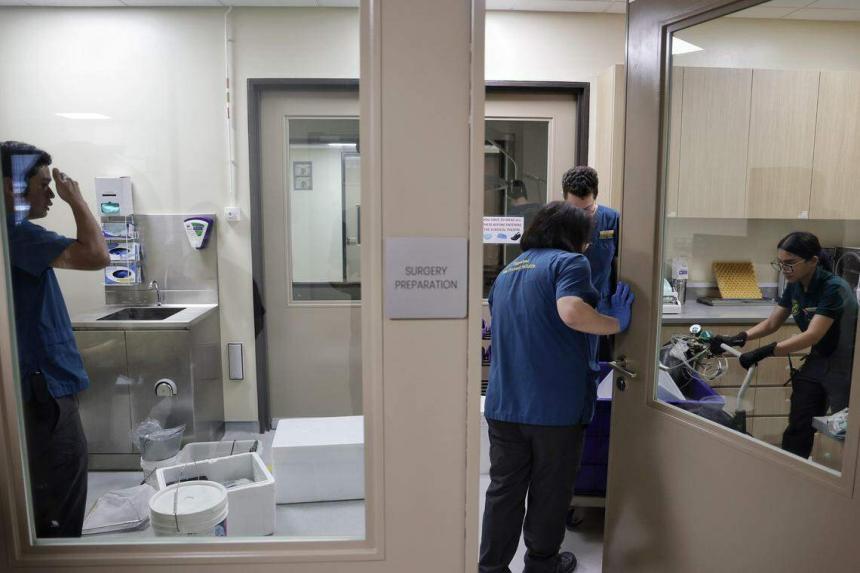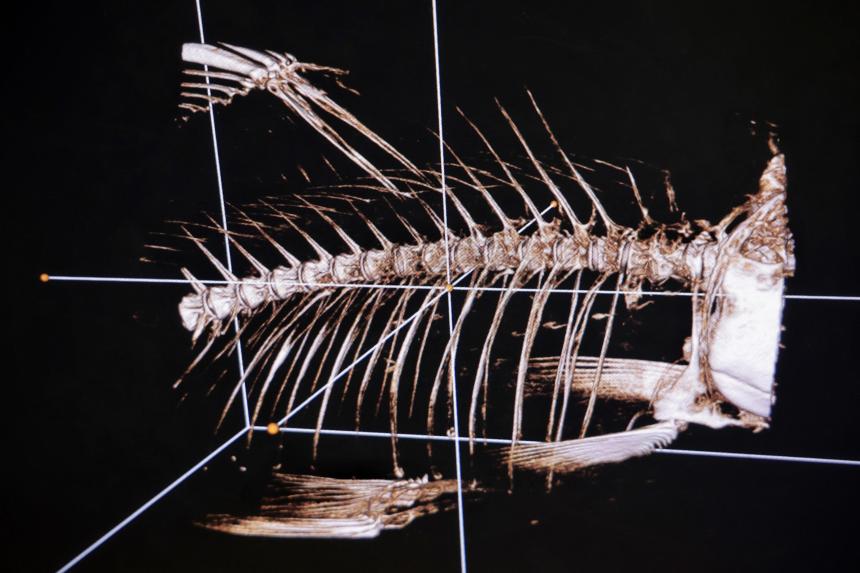SINGAPORE – As various species of fish swam in schools, a particular bala shark stood out in the Mekong River exhibit at Mandai Wildlife Reserve’s River Wonders in April. Swimming sideways and sometimes in circles, the fish’s abnormal swimming behaviour caught the attention of an aquarist.
Bala sharks, which originate from South-east Asia, are omnivorous freshwater fish that can grow to a maximum of 35cm in length. This species is not a true shark, but has been so called because of its torpedo-shaped body and large fins.
The veterinary healthcare and animal care team from Mandai Wildlife Group made a joint decision to conduct its first-ever CT scan on a fish on May 8.

Unlike an X-ray, which gives a two-dimensional image, a CT scan provides a 3D image with a higher level of detail that can detect minor changes in the bala shark.

Sedated and placed upright between a folded piece of wet sponge in a container, the fish underwent a CT scan, which took just 45 seconds. The entire process, from preparation to recovery, took less than 40 minutes.

Scan results revealed no broken bones in the bala shark, and it is likely to have sustained a soft tissue injury.

“The bala shark will be given anti-inflammatory medication and be monitored for two weeks, after which, it should be back to normal,” said Dr Xie Shangzhe, vice-president, veterinary health, Mandai Wildlife Group.




